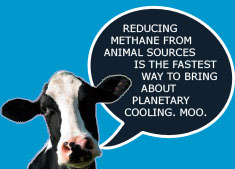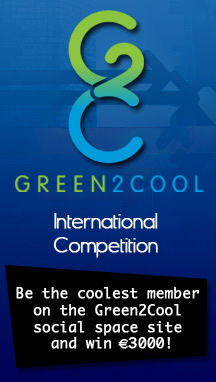Who can take part?

The competition is open to all 3rd level students over 18 years of age, and is limited to Irish universities, colleges and 3rd level institutions only.
All students who submit a campaign will receive a certificate of recognition for their hard work and dedication for a brighter planet.
You can apply as an individual or choose up to 3 campaign directors who can mobilise and recruit an unlimited campaign team to spread your message to your fellow students, community and beyond.
More than one team can register per college so it’s best to recruit early!
Choose your messages
How we eat affects the planet in many different ways. Your campaign could include some or all of the following topics:
The critical situation the planet is in requires urgent action.NASA climate change expert Dr. James Hansen states if we don’t act very quickly, as in the next one to two years, “we are all toast”.
Ireland is the second greatest producer of Green House Gasses from 27 EU countries (EU Environmental Agency report 2008).Effects on global warming relating to methane and other greenhouse gases.
A 2006 UN report “Livestock’s Long Shadow” estimates livestock are responsible for 18 percent of global emissions, including 37 percent of methane (72 times more potent than CO2), 67 percent of nitrous oxide (296 times more potent than CO2) and 9 percent of CO2.
Methane is being recognized as the most powerful lever for bringing about rapid cooling of the planet because it dissipates out of the atmosphere 9 to 15 years after it has been emitted, whereas CO2 will still be heating the planet hundreds of years after it has been emitted, and methane’s warming potential is much higher than originally estimated. Because livestock are the greatest source of human-caused methane, reducing your meat consumption or even cutting it out altogether is the easiest and fastest way to bring about global cooling, buying us critical time as we wait for new technologies to be developed and become established.
Deforestation and desertification– Deforestation is on the increase (in particular the Amazon) and estimated to account for approximately 20 percent of CO2 emissions. According to UN estimates over 70 percent of Amazon deforestation is due to livestock being raised for food – either because of grazing cattle or growing food such as soya which is then exported to supply animal feed for meat production.
– Overgrazing is the main cause of desertification worldwide.
Global Food ShortageRising food prices have plunged an additional 75 million people below the hunger threshold, bringing the estimated number of undernourished people worldwide to 963 million in 2008.
But are we really short of food?Although many blame biofuels for food shortages, in 2008, only 100 million tons (5 percent) of global cereal crops were used for biofuel. By contrast 760 million tons (38 percent) was fed to animals. Grain currently fed to livestock is more than enough to feed 2 billion people.
Is there really a world shortage of water?– Drought and water shortages are already beginning to grip parts of Africa, Spain, Australia and the US Southwest. Experts warn that wars of the 21st century will be fought over blue gold (water).
– “Saving Water: From Field to Fork” by the Stockholm International Water institute found that 70 percent of all worldwide water goes to producing food, with livestock being the single greatest source of water use, taking up to 20,000 litres of water to produce 1 kg of beef, but only 500 to 2,000 litres to grow 1 kg of wheat.
– The UN’s Livestock’s Long Shadow reports that livestock is the largest sectoral source of water pollution and responsible for 64 percent of ammonia emissions, which contribute to acid rain.
– Scientists have calculated that we would actually save more water by forgoing one pound of beef, or four hamburgers, than by not showering for at least six months.
Environmental and health benefits of a plant based diet.In their 2003 Position Paper on vegetarian diets, the Dietitians of Canada and the American Dietetic Association concluded that vegetarian and vegan diets are appropriate for all stages of the human lifecycle and can meet all nutritional needs.
Recent studies on nutrition are showing that it’s far easier to get all your nutritional needs from a pure plant based diet than traditionally thought, and that vegans do a better job of meeting nutritional needs than omnivores.
A plant-based diet, with a variety of plant-based foods including vegetables, fruits, breads, cereals, whole-grains, legumes, tofu, and nuts and seeds is a healthy and nutritional diet providing essential nutrients such as protein, iron, calcium, zinc, iodine, essential fatty acids and omega oils. By reducing your meat consumption or even going vegetarian you can help to:
– Reduce methane/nitrous oxide and carbon dioxide production
– Save large amounts of water
– Avoid further pollution of our streams/rivers/oceans
– Reduce destruction of topsoil & tropical rainforest
– Reduce destruction of wildlife habitats & endangered species
– Reduce the use of antibiotics, growth promoters and chemicals
– Reduce the spread of antibiotic-resistant superbugs
People who eat a healthy vegetarian diet are far less likely to develop cancer, cardiovascular disease, diabetes, obesity, etc. Additionally, people who develop these diseases and embrace a low fat, nutritionally-balanced vegan diet rich in vegetables have been medically proven to be able to overcome obesity, diabetes and cardiovascular disease, without surgery or drugs, and certain types of cancers.
Cardiovascular Disease: Cardiovascular disease is the number one killer both globally and in Ireland, causing nearly 40 percent of all deaths. It costs the European economy €192 billion per year, 57 percent of which is used on health care, 21 percent in productivity losses and 22 percent for informally looking after people.
Diabetes: Ireland has an estimated 250,000 patients diagnosed with diabetes and another 100,000 who are estimated to be undiagnosed. Treating diabetes costs the Irish economy about €600,000 per year.
Obesity: Experts are predicting that Ireland is on the verge of an obesity crisis. Since 1990, the rate of obesity in women increased from 13 pecent to 16 percent, and men increased from 8 percent to 20 percent. Obesity and related issues cost the US economy an estimated US$100 billion per year and Northern Ireland £500 million per year. How much more would this cost in the Republic?

Click here to view

Eco-Eating facts on meat diet vs. Plant-based diet (1.5 minutes)
THE GREEN PLANET AWARDS RAISE AWARENESS ABOUT THE CRITICAL SITUATION THE ENVIRONMENT IS CURRENTLY IN & HUMAN ACTIONS WHICH INFLUENCE CLIMATE CHANGE![]()
COOL LINKS
Wake Up, Freak Out
Take Aim At Climate Change
Save The Human Music Vid
GENERAL LINKS
Price of Meat
Meat The Facts
Veg Source
Earth Save
Monga Bay
NASA
Eco-eating
SEI
ENFO
Cultivate
Friends of the Earth
United Nations FAO
Hunger Site
One World
Diet, Energy, & Global Warming
HEALTH LINKS
Nutrition Ecology International Center NEIC
The Cancer Project
PCRM
Nutrition MD
Human Herbivore Physiology
ENVIRONMENTAL LINKS
Answering the sceptics
Tree Hugger
Sea Shepard Conservation Society
Permaworld
Grist
VNV.ORG.AU
UN News Centre
Science Daily
Science Daily: Poison ice
Time: Health and Science
Common Dreams
Global Stewards
The Independent
National Geographic
DotEnvironment
Green Peace Reports
IVU
![]()
Vegan: The New Ethics of Eating by Erik Marcus
The Food Revolution by John Robbins
Healthy at 100 by John Robbins
A Delicate Balance (film)
Meat The Truth (film)
The 11th Hour - Narrated by Leonardo DiCaprio (film)
![]()